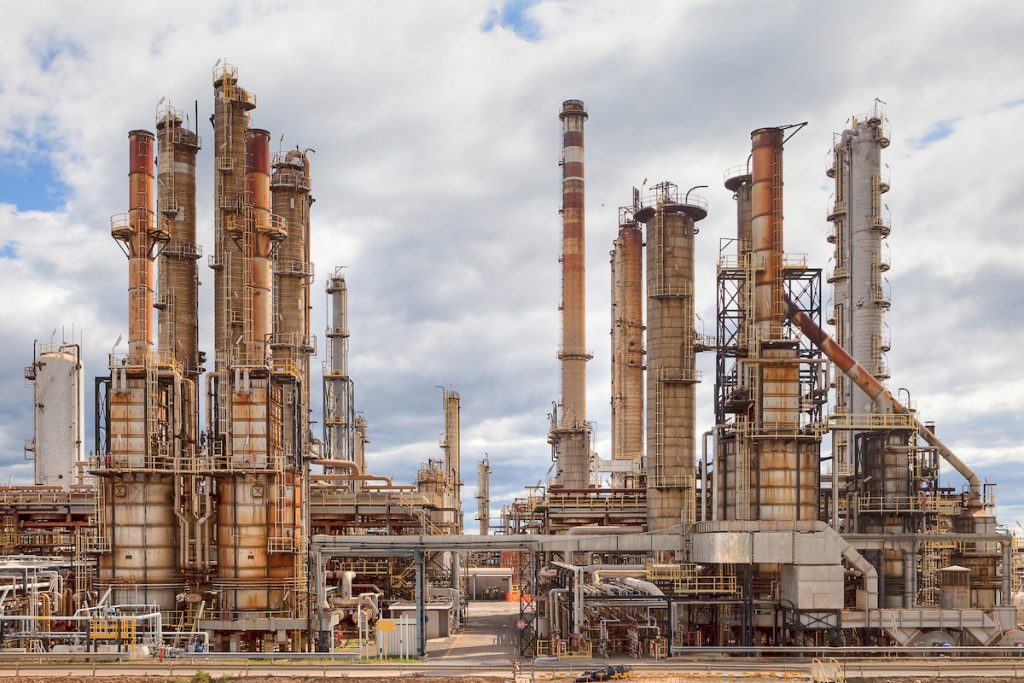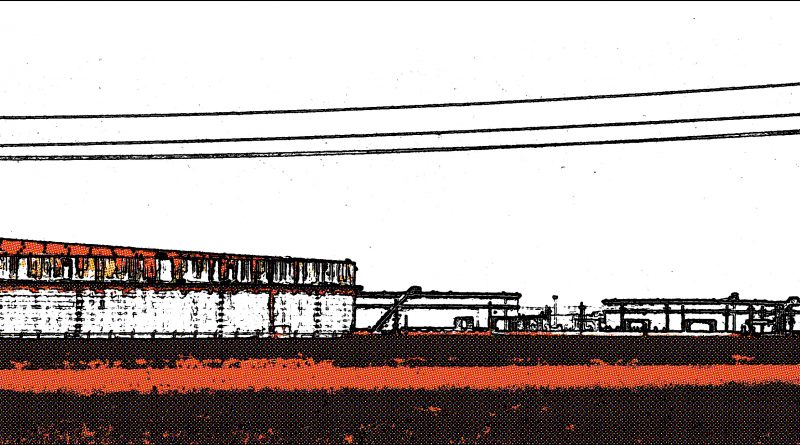No, Honey, Oil Isn’t Dead. It’s Just Sleeping.
Oil ended earlier this week with May futures contracts in the negative. This means that for every barrel of oil that was supposed to be delivered in May, anyone who held a futures contract was paying someone else to take it off their hands. Hold up. How does that even work? How can a product trade in the negative? Wasn’t oil supposed to be the cornerstone– the cash cow- of the global economy? It may still be. But it’s taking a nap for a bit from the COVID lockdown.

A (PRICE-)CRASH COURSE IN DERIVATIVES
In general, it’s not important for the average person to understand how commodities futures work. It’s nerdy, boring stuff– heavy on math and light on, uh, ethics. But some background might be useful in this case. Commodities futures are a contract to buy a specific thing at a specific price on a specific date. It’s sort of like the locked down version of option contracts, which allow— but do not force- the buyer to buy the associated (“underlying”) asset at a specific price on or before the expiration date.
In options trading, there is a thing called time value. The farther from the expiration date, the higher the time value. You have a certain amount of power over something that hasn’t happened because it’s so far in the future and so many things could change. In commodities, this manifests somewhat similarly in what is called contango, in which futures trade at higher prices than the current (“spot”) price.
If you own a stock options contract, it could be worth as little as $5 or $10. Your worst case scenario is that you lose $5 or $10. No big deal, right? If, however, you buy futures contracts on a hundred thousand barrels of oil, you have to buy those barrels of oil. You also have to pay to have it delivered, you know, somewhere. Oil isn’t exactly something you store in your backyard. Hence our problem. With the collapse of demand, we’re maxing out our storage capacity— so it is becoming prohibitively expensive to trade oil in the short term. Contango in futures is often associated with this problem of carrying cost. The US Strategic Reserve, which can supply the entire country for several months (at reduced demand), is currently worth tens of billions less than it cost to fill.
At their best, these markets are highly efficient exchanges for trading things that are important for human society to function. Coal, oil, crops, and more. At their worst? Enron– companies making money by causing power shortages. Bethany McLean wrote a great book about Enron that deals heavily with how the company essentially invented modern electricity markets as we know them– and then manipulated them for profit at the expense of consumers.
But the case of negative $37 for a barrel of oil isn’t about greedy manipulation. It’s about the fact that virtually overnight, demand has collapsed– and no one knows quite how to handle that. Nothing quite like this has ever happened before for such a mainstream commodity. It is backing off its lows a bit– for now. One opinion recently suggested that production cuts intended to prop up prices could bring us back to $100 oil.
THE MEANING FOR THE BROADER ECONOMY
In Montana last summer, I was working on an article in a brewpub in Billings, when I struck up a conversation with a convivial, however thoroughly inebriated rancher. I avoided digging too deep into his love for Donald J.– I find those chats hard enough with a sober person. But I was curious about the regional sentiment about oil. I had just stayed in a hotel in Dickinson, North Dakota, an odd little boomtown of the Bakken era. I had previously wondered if the oil boom hadn’t evaporated with the relative collapse in global prices circa 2014.
Mr. Rancher– who had some interesting ideas about the cultivation of hemp, cannabis, and how liberals were ruining the world- was of the firm opinion that Bakken oil was here to stay. Technology, he said, was improving productivity beyond the point of having to worry about collapses in global markets. (Bakken oil needs prices upward of $30/bbl to turn a profit, while Athabasca tar sands– harder to refine but nonetheless quite plentiful in volume- are closer to $40). Nor was he worried about the bogeyman of electrified transportation supplanting black gold. All just hokum, he said, it’ll never happen. Or, if it does, he continued, it’ll take years.
Oil supply chains are among the best-developed in the entire world. Traded in US dollars because of the historically insatiable demand for oil in the Land of the Free, the commodity is essentially the universal equivalent. The US and Canada had a strong, geopolitical interest in destabilizing the stranglehold of Middle Eastern countries like Kuwait, the UAE, and, of course, Saudi Arabia on the flow of black gold, and so invested heavily in domestic drilling around the time oil prices were through the roof. Remember all of that talk of energy independence? And how, for a bit, we were actually an oil exporter– well, sort of. Hey, I think the US even fought a war over it, or something.
The Kingdom has a vested interest in trying to shut down the competition. But while this might be good for them in the long term, it might also cause beaucoup problems for the monarchy’s laggard economy. It is anyone’s guess what OPEC is going to do facing unprecedented things like, uh, negative oil prices.
In the United States, the silver lining of COVID-related shutdowns is that we’re enjoying things like clean air. Sure, we’d all love to get this economy open again. But who knows? Maybe we might decide that we can figure out a better way to do that whole GDP thing– without spending trillions of dollars sitting in our motorcars. In that case, oil prices have quite the rocky road to recovery. To be clear, the commodity isn’t likely going away any time soon altogether. But it’s definitely the only one taking a vacation, and we’re not sure when it will return.

FURTHER READING
Saudi America: The Truth About Fracking and How It’s Changing the World (Bethany McLean, of awesome Enron book fame)
Oil 101 (Morgan Downey)
The Prize: The Epic Quest for Oil, Money & Power (Daniel Yergin)



